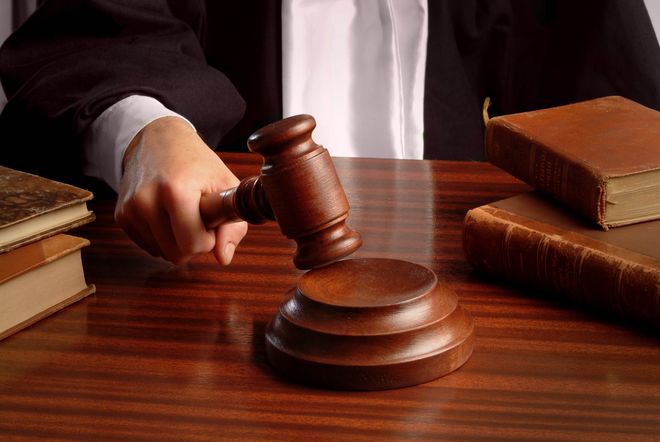This article is written by Swetalika Das from Amity University, Kolkata. This is an exhaustive article which deals with the changes that are brought in by the 21st century pertaining to expert witness evidence.
Table of Contents
Introduction
Expert witness evidence is the evidence that requires an expert opinion. To be precise, let’s say a person is stabbed to death and the weapon by which he was stabbed has both fingerprints and DNA on it. Here, the fingerprints and DNA can help the court to identify the real culprit. For this purpose, the opinion of an expert who is highly skilled in examining DNA samples is required. An expert can examine the DNA samples and identify the culprit, further, he can submit a report of examination and his opinion on the same.
Thus, we can say that an expert witness is a person who has extensive knowledge, experience, and skills in a particular field in relation to the case. The opinion or the evidence by an expert is admissible at the court to conclude the case.
The expert witness evidence may seem to be modern law terminology but it has a long history behind its development. The first introduction of expert witness evidence was in the 18th century in English Law. Since then, there has been continuous development in laws relating to expert witness evidence.
This article briefly discusses the history of expert witness evidence, the relevant changes in the 21st century, and the positive and negative impacts in the treatment of expert witness evidence in English law that were brought in by the 21st century.
A brief history of the expert witness evidence
Beginning of expert witness
At the beginning of the 18th century, the concept of witnesses was not familiar in English courts. Not many people were allowed as witnesses to give testimony, many legal practitioners were not allowed to act for their parties. Even in criminal cases, the defendant was not able to provide evidence to prove himself innocent. This was the condition of English trials until the judgment in Folkes. V. Chadd (1782). It was the first case to introduce the concept of expert witness evidence in English Law, it is also known as the Wells Harbour Case. In this case, the Court considered the expert opinion of a famous scientist who had a thorough knowledge of matters related to science. Further, the Court stated that “an expert opinion after receiving the knowledge of facts is admissible in the court of law if the witness is having substantial knowledge and vast experience in that particular field which is related to the case.”
Now, the Court has pointed out a very crucial point that “after receiving the knowledge of facts”, which means that even if the expert witness has expertise in a particular area, knowledge of relevant facts is still significant.
The same was held in R. v. Turner (1975), where the court stated that an opinion would be admissible in the court if the expert witness has sufficient information of the relevant facts, in case of any misinformation or consideration of irrelevant facts, the value of the expert opinion will remain meaningless. Therefore, to avoid any such situation an examination-in-chief should ask the expert witness to check whether the witness knows all the relevant facts.
Criticisms
In the 19th Century, the concept of expert witness evidence had spread worldwide. Counsels, Judges started putting their opinions regarding this new concept. They criticized expert witnesses as biased and a mere paid employee of the legal representatives which can halt a satisfactory decision of the court. In solution to this, Sir George Jessel stated in the case Thorn v. Worthing Skating Rink (1876) that first, we need to find an unbiased expert witness and then proceed with the appointment of the witnesses as an expert. However, finding an unbiased witness wasn’t an easy task.
The criticisms continued till the end of the 19th Century. However, it was found that there was no specific rule concerning the expert witness. To solve this issue, many legal practitioners suggested forming a new law on the expert witness to prevent partiality.
Formation of rules for expert witness
After a lot of debate, new rules were set to form in the mid 20th Century. The very first case to enact rules for expert evidence was the US Supreme Court case Daubert v. Merrell Dow Pharmaceuticals.Inc.(1993). In this case, the Federal Rules of Evidence were enacted for the admissibility of expert witness evidence.
Rule 702 of the Federal Rules of Evidence states that an expert who is having experience, immense knowledge, or skills is eligible to testify an opinion or evidence, only if it satisfies the following Daubert’s Rule which states that:
- The expert knowledge and experience must help the case to determine the fact in issue of the case.
- The expert should give the opinion after receiving sufficient data or facts of the case.
- The opinion must be obtained from any theory or principles.
- Application of methods or principles as per the facts of the case.
Developments in the 21st century
Duties of the expert witness
According to Rule 19(2)(1) of Criminal Procedure Rules,2020, the foremost duty of an expert witness is to fulfill the “overriding objectives” of the court by performing the following duties such as:
- Giving an impartial opinion.
- The opinion must be within the expertise area of the expert witness.
- The expert witness should assist the court by following the court orders.
- In case of any significant failure in moving forward with the proceedings, the expert witness must inform the court.
Apart from the duties, some obligations that are imposed upon the expert witness, are:
- The expert needs to provide a detailed report that includes his area of expertise or else the expert can provide his expertise while providing the evidence at court.
- The expert needs to inform the court in case of any changes made in the report that is submitted as evidence.
It is important to note that the overriding objectives of the court only deal with the criminal proceedings including the admissibility of expert witness evidence.
Admissibility of expert witness evidence in criminal proceedings under the English Law
Statutes dealing with the admissibility of expert witness evidence
Criminal Justice Act, 1988
Section 30 of the Criminal Justice Act,1988 states that an expert opinion or evidence is admissible at the court irrespective of the fact that the expert witness attends the court to give oral evidence or not. However, if the expert witness is not giving oral evidence, then he must get leave from the court. The court will grant permission after considering the following facts:
- The contents of the detailed report submitted by the expert.
- If the report suggests the necessity of oral evidence, then the court may not grant any leave.
- Reasons for not being able to attend the court.
- Existence of unfairness to the accused.
Criminal Procedure Rules, 2020
Rule 19(2) of the Criminal procedure rules, 2020 and Criminal Practice directions CPD V evidence 19A both deal with the admissibility of expert witness evidence. Expert evidence is admissible when:
- It is relevant to the facts in issue of the case.
- The information provided by the expert witness is not within the knowledge of judges or jury.
- The expert is competent enough to give an opinion.
- Presence of reliability in expert’s evidence.
- Impartial opinion of an expert witness.
Why special requirements for admissibility of expert’s evidence
There are several reasons which show the significance of expert opinions in criminal proceedings. However, the foremost reason is that an expert witness is different from other normal witnesses. There are complex facts or situations in some cases that require a high degree of technical knowledge to solve which cannot be performed by a normal witness. The degree of complexity of the cases demands expert advice which needs to be done without any mistake. The court cannot admit any random or unnecessary advice from an expert. Hence, the advice must comply with the rules and regulations. This would ensure effectiveness and efficiency in court procedures dealing with complex cases. Therefore, it’s important to set down some requirements for the special category of witness evidence.
Requirements for admissibility of expert witness evidence
There are four requirements for admissibility of expert witness evidence, they are:
- An opinion must be necessary to the Court
In criminal proceedings, there can be some instances where the court may need an expert opinion. However, the information or knowledge of the expert witness should not be within the knowledge of the judge or jury otherwise the opinion of an expert would be inadmissible.
In cases, whether criminal or civil, the judges or jury must look into only the necessary facts. However, opinions which are already in the knowledge of the judge, or the opinion is just a matter of common sense are unnecessary and hence, it would be a waste of time for the court.
In Turner’s case, the Court held psychiatric evidence as inadmissible because the evidence showed how a normal person without having any psychiatric issues would perform in a particular situation. This evidence is a matter of common sense, therefore, it was held as inadmissible.
- Expertise in a particular field
As mentioned earlier, a witness must have acquired adequate experience, education, training, qualities, or skills in a particular field to qualify for being an expert witness. To prove expertise in any relevant field, experts need to provide evidence of their expertise by following the required guidelines.
However, if a witness has only pursued a basic education and has zero years of experience in that field then his opinion or evidence wouldn’t be admissible. Therefore, it is important to note that only having a mere education or training is not sufficient, to obtain expertise, an expert needs to acquire years of experience and skills in the relevant field.
For instance, a drug analyst who is just a fresher in the field and only has some basic qualifications, the evidence or opinion produced by him cannot be held as admissible in matters relating to the drugs because he doesn’t have years of experience or knowledge.
- Unbiased nature of the expert witness
As stated before, the issue of the bias of expert witnesses came into light in the early 19th century. Later, in 2000, the Court stated in the case Field v. Leeds City Council(1999) that before proceeding with trials and opinions, the expert witness is required to produce evidence that shows an unbiased objective of the witness in the relevant field of his expertise. If in case, the witness is found to have any materials or evidence that indicates impartiality, the court could not accept the evidence for further proceedings. The same was reinforced in Rule 19(2) of Criminal Procedure Rules, 2020 which stated the significance of an unbiased opinion from an expert witness.
- Reliability of an expert opinion
An expert opinion is said to be reliable when the opinion is based on sufficient scientific methods. To be precise, the reliability of an expert opinion depends upon the methods or principles used by the expert such as the type of scientific techniques or any theories which have been used before concluding.
The court will determine the reliability of an expert opinion after considering the following factors:
- The quality or quantity of the data is taken into account by the expert.
- Whether the expert has taken help of any reference (for example, any statistics or sources) and whether the expert properly explains it in his opinion.
- Whether the expert analyzed the results of the method used by him such as laboratory experiments, survey, scientific test or measurement. Here, the expert needs to check the accuracy, certainty, and reliability of test results.
- Whether the materials ( for example; research publications) that are taken into account by the expert are reviewed by other expertises of the relevant field.
- Whether any information falls out of the expertise area.
- Whether the expert has acquired complete information before coming into an opinion.
- To what extent does the expert’s opinion include his own opinion and explanation.
- Whether the methods used by the expert comply with the principles of that relevant field, if not, then the expert needs to explain it.
Expert evidence would not be admissible based on reliability, if:
- The experiments or tests fail to give accurate results and the opinion is just a hypothesis.
- If the opinion is an irrelevant assumption.
- If the opinion is based on distorted data or information.
- The methods or principles are not properly taken into consideration.

Viewing the positive and negative aspects of the change in the treatment of expert witness evidence in the 21st century
Positive impacts:
Introduction of statutes
After Rule 702 of Federal Rules of Evidence, there was a need for a proper statute to regulate all the activities related to the admissibility of expert witness evidence. Therefore, the changes that have been brought in by the 21st century have given a new definition to the treatment of expert witness evidence. For instance, the introduction of Rule 19(2) has provided the duties and obligations of the expert witness; the same were not imposed by the earlier provisions.
Admissibility tests for expert witness
The aforesaid requirements for the admissibility of expert witness evidence is an important change in the 21st century. The establishment of the reliability test for admissibility is the most significant one as it will guide the court to whom to choose and whom not to choose as the expert witness. Reliability test proves the efficiency of the expert evidence and ensures a favorable solution to the complex problems faced by the court. The other requirements such as unbiasedness of witnesses seem to solve the issues that were raised in the 19th century.
Exposure of expert witnesses
Due to the increase in the significance of expert witness evidence, the expert witnesses got a lot of exposure to apply their knowledge and experience in their respective expertise fields. The expert witnesses can consider this as an important growth in their career which would provide them with satisfactory results to their years of hard work in the relevant field.
Negative impacts
Apart from the positive impacts, there can be some negative impacts on future legal proceedings regarding the expert evidence due to the absence of any guidelines to assist the judge or jury while deciding the evidentiary reliability. The problem may increase due to the involvement of any non-experts in the criminal proceedings who may not have sufficient knowledge in that particular field to determine the relevance of the scientific evidence, this same issue can arise for the legal practitioners in the cross-examination as it may not determine the reliability of scientific evidence that can result in unjustifiable convictions and acquittals.
Conclusion
To sum up the above discussion we can say that with the advancement of time the significance of expert witness evidence has increased enormously. The 21st century has laid down some important developments concerning expert evidence starting from the obligations of an expert witness to admissibility tests for expert evidence. All the developments proved to bring a positive impact on the legal proceedings. However, as there are loopholes in many legal developments, the admissibility of expert witness evidence is no different, it also has a loophole that needs re-examination.
References
- https://www.ncbi.nlm.nih.gov/pmc/articles/PMC6474433/
- https://core.ac.uk/download/pdf/228603272.pdf
- https://www.gov.uk/guidance/rules-and-practice-directions-2020
- https://www.legislation.gov.uk/ukpga/1988/33/data.pdf
- https://papers.ssrn.com/sol3/papers.cfm?abstract_id=2955049
- https://www.lawcom.gov.uk/project/expert-evidence-in-criminal-proceedings/
- https://www.routledge.com/Effective-Expert-Witnessing-Practices-for-the-21st-Century/Matson/p/book/9781439887677
- http://www.lawcom.gov.uk/app/uploads/2015/03/cp190_Expert_Evidence_Consultation.pdf
LawSikho has created a telegram group for exchanging legal knowledge, referrals and various opportunities. You can click on this link and join:
https://t.me/joinchat/J_0YrBa4IBSHdpuTfQO_sA
Follow us on Instagram and subscribe to our YouTube channel for more amazing legal content.
 Serato DJ Crack 2025Serato DJ PRO Crack
Serato DJ Crack 2025Serato DJ PRO Crack










 Allow notifications
Allow notifications


